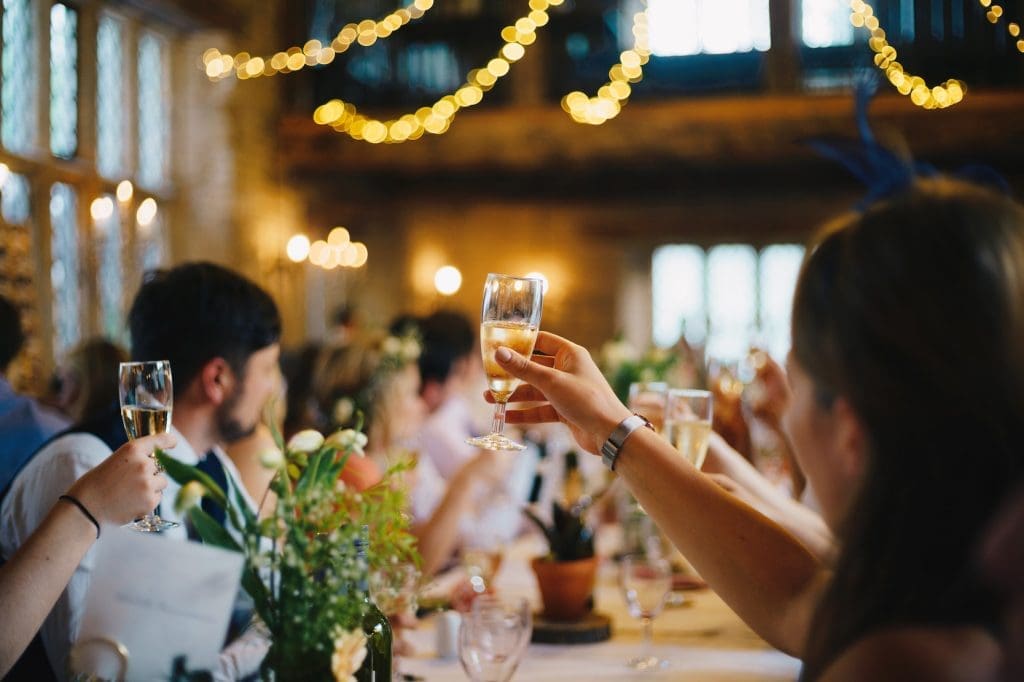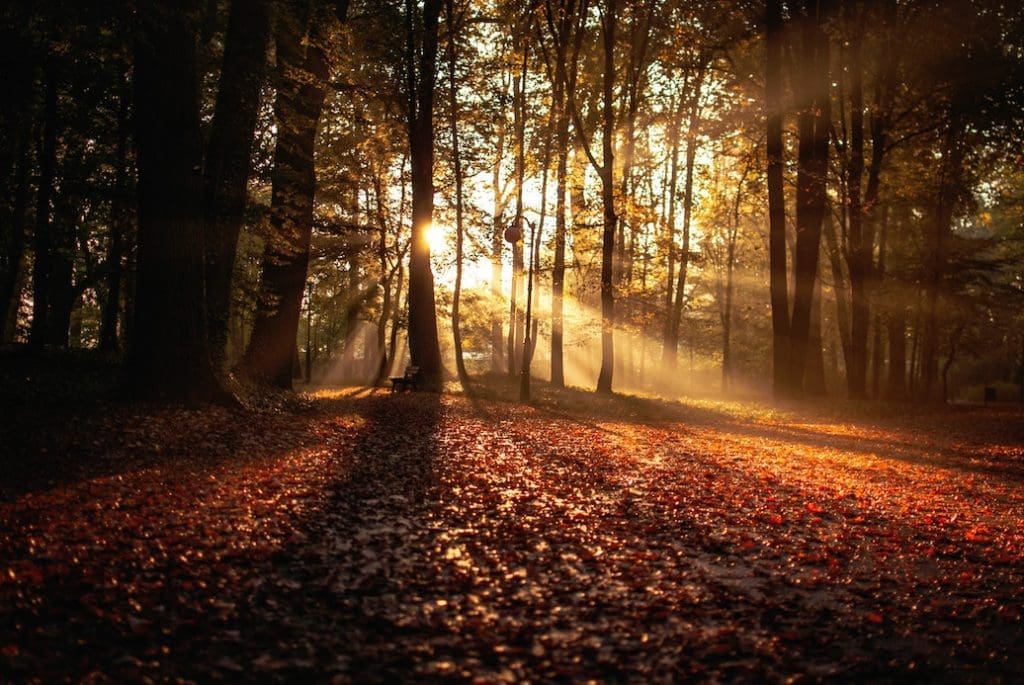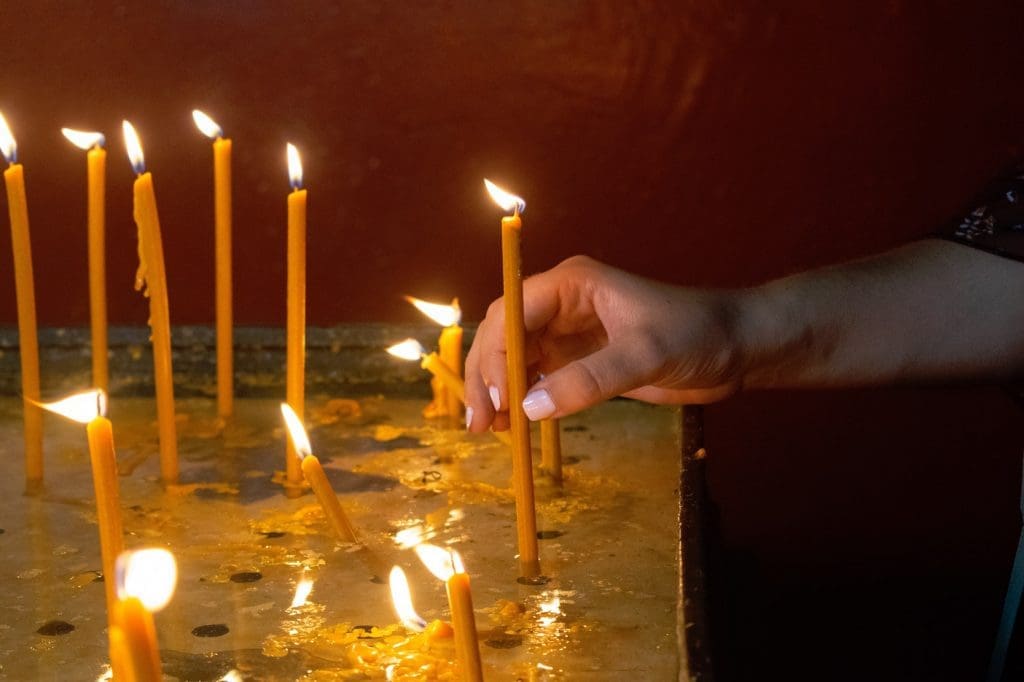You don’t need a promotion or a birthday to gather some pals together. Emma Clifton makes the case to celebrate right now, just because.
A few months ago, I got the second-hand bargain of my life at an antiques shop in Nelson. I knew it was good because my mum has an eye for good antiques, after a life-time of collecting them and also helping run an antique store. “Buy them immediately before they change their mind,” she whispered to me as I moved towards the counter, clutching a set of Waterford crystal glasses (for $125) in my hands.
There’s a slightly bittersweet poetry to buying a pristine second-hand item – a poetry I know well because most of my furniture has come (via my mum’s eagle eye) from hospice shops over the years. You are buying a once-prized possession, kept pristine and perfect by its original owner, only for it to end up in someone else’s hands eventually. When I look at my fancy crystal glasses, I wonder who they were bought for and why. Were they part of a wedding registry set, bought for a celebration and then kept behind glass for their whole lives, like so much of my grandparents’ ‘good china’ was, only to be sold on when they downsized out of their home?

After the pandemic years we’ve had, I believe there’s a case to be made for getting the ‘special occasion only’ goods out all the time. When I used those fancy crystal glasses for the first time, instead of putting them back in the box I put them in with my ‘normal’ glasses, so we could use them all the time. Why not? What good is it buying nice things if you never use them, if they only end up living in a box?
As part of my ‘mildly depressed, but in a global, existential way rather than clinically diagnosed’ reading list (niche), every year I read Wintering: The Power of Rest and Retreat In Difficult Times by Katherine May, about a year when Katherine and her young family went to ground after illness and mental distress and learned how to truly ‘winter’, e.g. shut themselves off from a lot of the world in order to recoup post-trauma. As a journalist, Katherine threw herself into the research of how groups of people who endure long, dark winters cope with the seasonal factors and what we can learn from them when it comes to making it through our own dark patches.
In the pagan calendar, there is a ceremony or ritual every six weeks of the year when you hold a gathering with your fellow pagans.
The conversation that stuck with me the most from this book was the one she had with Philip Carr-Gomm, the then-Chief Druid in the UK – modern druids tend to align with pagan religions, which include a heavy belief in the cycles of nature, e.g. the solstice celebrations like mid-winter (winter solstice, the shortest day of the year), and mid-summer (summer solstice, the longest day of the year). The key point from Philip was that in the pagan calendar, there is a ceremony or ritual every six weeks of the year when you hold a gathering with your fellow pagans.


These regular events give people a touch point to meet with each other and also something to look forward to, which are both key parts in keeping us mentally healthy and also connected to our community. Keeping these ceremonies linked to nature also keeps pagans in tune with the changing of the seasons, which reminded me of the first Level 4 and Level 3 lockdowns. Because so many of us have been inside for the past two years, we paid attention to shifts of nature in a way that we may not have for some time.
When your outdoor time is car to office, car to home, you only tend to notice the weather from a distance. But when you slow down and spend more time outdoors, you are witness to those gradual changes. Last year on your mandatory walks, you might have seen the slow fade of the leaves from green to red, or felt a crisp chill in the mornings that wasn’t there the previous week.
Last week, feeling nostalgic, I was going through my old 2020 work notebook when I came across a list of ‘Things I am Looking Forward to’ that I had written in the first weeks of our very first lockdown. They were all incredibly simple: one more sea swim, a trip to the movies, a good flat white, being able to wear something other than track-pants. It made me sad when I realised how much of that novelty factor I had lost since we moved out of each lockdown – that I had let go of that sense of reverence I had as we slowly left our houses each time, when seeing a friend for a coffee felt like a cause for celebration.


Learning how to celebrate the good times is a great way of enduring the bad times and providing contrast, particularly when the actual calendar seems to run away from us (I think I lost track of dates in 2020 and they have never returned!) It reminds me of my all-time favourite poem, titled Won’t You Celebrate With Me and written by Lucille Clifton, where the final line is this:
“come celebrate
with me that everyday
something has tried to kill me
and has failed.”
I mean… it rings true in a pandemic, no? And if those celebrations involve bringing out the good china, or the special wine, or, in my case, the fancy crystal glasses, then that’s even better. Cheers!

